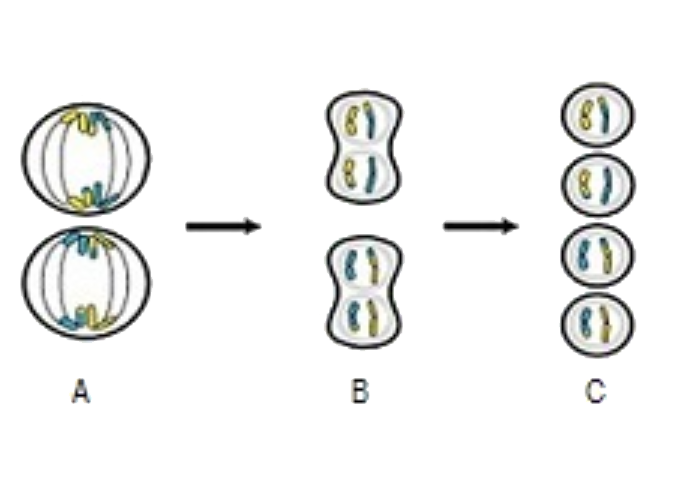During embryonic development, the total cell cycle time for a given cell type can change. These are primarity due to variation in
G1 phase
G2 phase
M phase
S phase
The correct Answer is:A
Step-by-Step Solution:
1. Understanding the Cell Cycle: The cell cycle consists of several phases: G1 (Gap 1), S (Synthesis), G2 (Gap 2), and M (Mitosis). Each phase has a specific role in the cell's preparation for division.
2. Identifying the Phases:
- G1 Phase: This is the longest phase where the cell grows and prepares for DNA synthesis. It is often referred to as a resting phase.
- S Phase: This phase is where DNA replication occurs. The amount of time spent in this phase can vary significantly between different cell types due to the differences in the amount of DNA that needs to be replicated.
- G2 Phase: This is a shorter phase where the cell prepares for mitosis after DNA synthesis is complete.
- M Phase: This phase involves mitosis, where the cell divides into two daughter cells.
3. Focusing on Variation During Embryonic Development: During embryonic development, the total cell cycle time can change based on the specific requirements of different cell types. The variation in the S phase is particularly significant because it involves the replication of DNA, which can differ in duration depending on the cell type.
4. Conclusion: The total cell cycle time for a given cell type during embryonic development primarily changes due to variations in the S phase, as this is where DNA synthesis occurs and the time taken can vary based on the amount of DNA that needs to be replicated.
Final Answer: The total cell cycle time for a given cell type during embryonic development can change primarily due to variation in the S phase.
---
- G1 Phase: This is the longest phase where the cell grows and prepares for DNA synthesis. It is often referred to as a resting phase.
- S Phase: This phase is where DNA replication occurs. The amount of time spent in this phase can vary significantly between different cell types due to the differences in the amount of DNA that needs to be replicated.
- G2 Phase: This is a shorter phase where the cell prepares for mitosis after DNA synthesis is complete.
- M Phase: This phase involves mitosis, where the cell divides into two daughter cells.
Topper's Solved these Questions
Similar Questions
Knowledge Check
Each cell grows during the cell cycle in
AInterphaseBProphaseCMetaphaseDAnaphaseCell cycle can remain arrested at :-
AG1BSCG2DMOf the total duration of cell cycle, the interphase lasts more than
A95%B5%C90%D92%
During cell cycle, time taken for the completion of M-phase is :-
View SolutionDuring cell cycle, DNA replicates
View SolutionAnalyze the events occurring during every stage of the cell cycle, how the amount of DNA content (C) per cell changes and select the correct option.
View SolutionDNA synthesis during cell cycle takes place in
View SolutionIn which stage of development the embryonic cells form the germinal layers by the movement
View Solution

